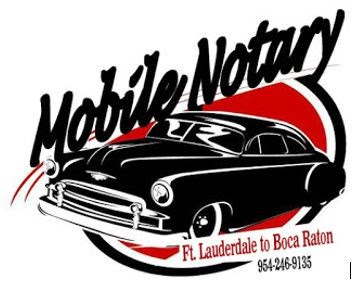Common challenges when notarizing estate documents in Florida
Notarizing estate documents can be a complex process, especially in the state of Florida. There are several challenges that individuals may face when attempting to have their estate documents notarized in Florida. Understanding these challenges and knowing how to navigate them can help make the process smoother and more efficient.
One common challenge when notarizing estate documents in Florida is the requirement for witnesses. In most cases, Florida law requires two witnesses to be present during the notarization of certain estate documents, such as wills, poa, deeds and trusts. The witnesses must not be beneficiaries or parties to the document, and they must sign the document in the presence of a notary public. It's also important that the witnesses are not relatives or family members.
Another challenge is finding a qualified notary public. While there are many notaries in Florida, not all of them have the knowledge to perform notarizations on estate documents. It is important to find a notary public who is familiar with the specific requirements and procedures for notarizing estate documents in Florida.
Additionally, timing can be a challenge when notarizing estate documents in Florida. Some estate planning documents, such as a durable power of attorney, require the notarization to take place before the document can be used. This can be a challenge for individuals who may wait until the last minute to complete their estate planning. This is why Mobile Notary Fort Lauderdale to Boca Raton offers professional experienced mobile notary public signing teams consisting of a notary public and two witnesses. They offer same day last minute and same day estate document signings.
Tips for a smooth and efficient estate document notarization process in Florida
While notarizing estate documents in Florida can be challenging, there are several tips that can help make the process smoother and more efficient.
First and foremost, it is important to plan ahead. Estate planning is a process that should not be rushed, and leaving time for the notarization of documents is crucial. By starting the process early and allowing ample time for notarization, individuals can avoid the stress and complications that can arise from last-minute planning.
Another tip is to do thorough research when selecting a notary public. It is important to find a notary who is knowledgeable about the specific requirements and procedures for notarizing estate documents in Florida. Additionally, individuals should ensure that the selected notary is authorized to perform notarizations on estate documents. This can be done by checking with the Florida Department of State's Division of Corporations website.
When scheduling an appointment with a notary public, it is essential to inform them in advance about the need for witnesses. Not all notaries are able to provide witnesses, so it is important to clarify this beforehand to avoid any delays or complications during the notarization process.
It can also be helpful to gather all necessary documents and information ahead of time. This includes any identification documents, the estate documents themselves, and any other relevant paperwork. By having everything ready and organized, individuals can ensure a smoother and more efficient notarization process.
Lastly, individuals should consider seeking guidance from an estate planning attorney. Estate planning can be complex, and an attorney can provide valuable advice and assistance throughout the process. They can help ensure that all necessary documents are properly notarized and executed, and that they comply with Florida state laws.
In conclusion, notarizing estate documents in Florida can be a complex process, but with proper planning and preparation, it can be made smoother and more efficient. By understanding the common challenges and following the tips provided, individuals can navigate the notarization process with ease. Whether it's finding a qualified notary public, scheduling appointments in advance, or seeking guidance from an attorney, taking proactive steps can ensure that estate documents are properly notarized in Florida.
Additional context: Notarizing with Witnesses
When notarizing estate documents in Florida, it is important to understand the specific requirements for notarizing with witnesses. As mentioned earlier, Florida law often requires two witnesses to be present during the notarization of certain estate documents.
The witnesses must not be beneficiaries or parties to the document, meaning they cannot be named in the document or have a legal interest in it. They must also sign the document in the presence of the notary public, affirming that they witnessed the document being executed by the signer.
It is crucial to choose witnesses who understand the importance of their role and are willing to fulfill their responsibilities. They should be individuals who can be trusted to act impartially and truthfully. It is advisable to discuss the role and requirements of witnesses with them beforehand to ensure they are fully aware of their responsibilities.
Additionally, it is important to note that the witnesses must be physically present during the notarization. Remote or virtual witnessing is not allowed in the state of Florida for estate document notarization. This means that all parties, including the notary public and witnesses, must be in the same physical location.
By adhering to these requirements and guidelines, individuals can ensure that their estate documents are notarized properly with witnesses in the state of Florida.
Click here to call Mobile Notary
If your going to use your estate documents like a POA overseas Mobile Notary Fort Lauderdale to Boca Raton can also help you Florida apostille documents in a day or two.





